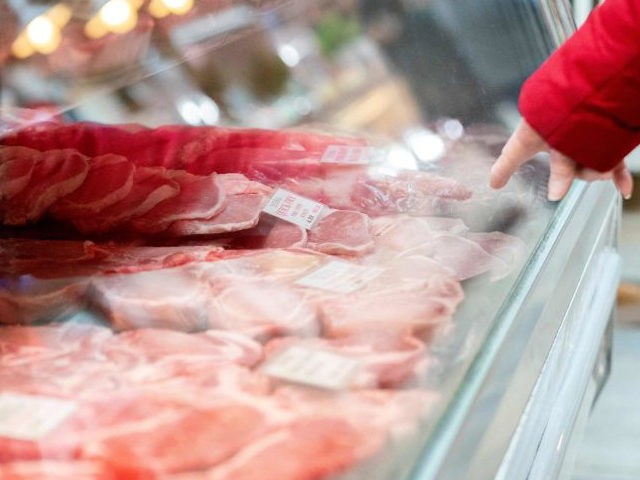Rep. Jim Jordan (R-OH) on Monday reminded Americans that prices were far lower when Republicans were in control in Washington, DC, drawing a stark contrast between the two parties as the midterm elections swiftly approach.
“Remember groceries being this expensive when Republicans were in charge? Nope!” Jordan exclaimed:
His remark comes as America experiences 41-year high inflation and as most Americans identify inflation and the economy as the top issues of concern heading into the midterm elections. Further, most Americans admit that they are “concerned” over their ability to afford “day to day things”:
Overall, 65 percent said they are “concerned” about their ability to afford “day to day things,” while 66 percent are “concerned” about their ability to “take a vacation or travel.”
Nearly three-quarters, 73 percent, said they are “concerned” about their ability to purchase a “big ticket item,” and another 73 percent said they are “concerned” about their ability to save money right now.
Those concerns coincide with reports of the price of basic Fourth of July goods skyrocketing, up 17 percent from one year ago, according to a survey from the American Farm Bureau Federation (AFBF):
The average cost of a summer cookout for 10 people is $69.68, which breaks down to less than $7 per person. The overall cost for the cookout is up 17% or about $10 from last year, a result of ongoing supply chain disruptions, inflation and the war in Ukraine.
The individual breakdown is even worse. Two pounds of ground beef, for example, is up 36 percent, and two pounds of boneless chicken is up 33 percent. Further, 32 ounces of pork and beans is up 33 percent, and three pounds of center cut pork chops is up 31 percent. Lemonade, another summer staple, is up 22 percent.
“Despite higher food prices, the supply chain disruptions and inflation have made farm supplies more expensive; like consumers, farmers are price-takers not price-makers,” AFBF Chief Economist Roger Cryan said in a statement.
“Bottom line, in many cases the higher prices farmers are being paid aren’t covering the increase in their farm expenses,” he added. “The cost of fuel is up and fertilizer prices have tripled.”
These trends are not new, either. An April CBS News/YouGov survey found that 53 percent of Americans had to cut back on food and groceries due to rising prices.

COMMENTS
Please let us know if you're having issues with commenting.